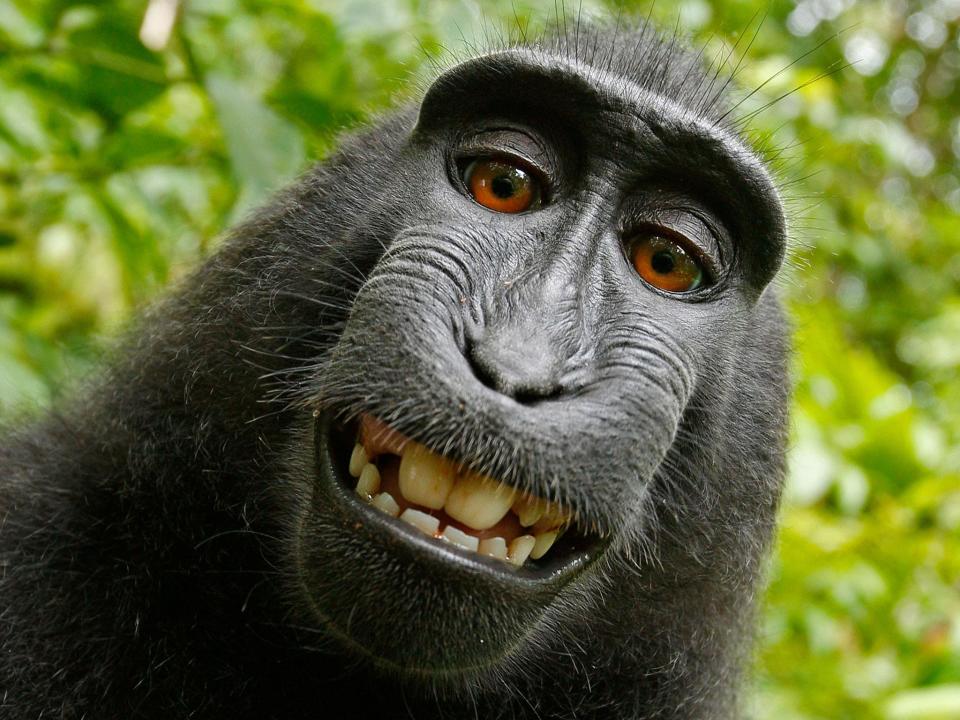Monkey that took selfie named 'Person of the Year' by PETA

An Indonesian monkey that triggered a landmark copyright case when it took a photograph of itself has been named Person of the Year by one of the world's largest animal rights groups.
The People for the Ethical Treatment of Animals (PETA) said it was honouring the crested black macaque – dubbed Naruto – to recognise that "he is someone, not something".
The monkey took the photograph of itself in 2011 after British nature photographer David Slater set up a camera on the Indonesian island of Sulawesi.
Mr Slater published the photographs in a book, but a bitter copyright dispute erupted after Wikipedia reproduced the photographs without permission. The online encyclopedia argued the images did not belong to the photographer as the monkey pressed the camera button.
Later, PETA started a separate suit on behalf of the monkey, arguing it should be "declared the author and owner of his photograph".
The organisation's president Ingrid Newkirk said at the time: "Naruto's historic selfie challenged the idea of who is a person and who is not and resulted in the first-ever lawsuit seeking to declare a nonhuman animal the owner of property, rather than being declared property himself.
“PETA hopes that by honouring him, Naruto will be recognised as a special person — an individual with thoughts and feelings, emotions and desires, and the ability to plan and self-reflect — as a being with personality, and as someone, not something.”
Mr Slater won the first hearing in California, but PETA then appealed to a higher court.
The case was eventually settled in September, with Mr Slater agreeing to donate 25 per cent of future profits from the photographs to help protect crested black macaques in Indonesia.
PETA said the number of the monkeys has decreased by 90 per cent in the last 25 years because of the destruction of their habitat and because indigenous people slaughter them for their meat.

 Yahoo News
Yahoo News 